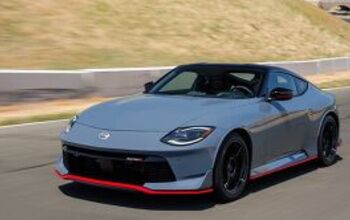Illinois Auto Dealers Sue State Over Rivian's Direct-Sales Model [UPDATED]

Rivian’s plan to sell vehicles directly to consumers has raised the ire of two auto-dealer groups in Illinois.
The Illinois Automobile Dealers Association and the Chicago Automobile Trade Association have sued the Illinois Secretary of State, claiming that Illinois law requires new-car sales to flow through licensed franchise dealers and prevents new-car manufacturers from selling directly to consumers.
(Full disclosure: I’ve done paid and unpaid work for CATA before being hired at TTAC, and while employed here I have contributed a guest column for the Chicago Auto Show brochure and have appeared on the DriveChicago radio program, which is hosted in part by CATA employees, to discuss cars and the industry).
Rivian will build its EV trucks in Normal, Illinois, and has plans to open a showroom in Chicago’s Fulton Market district. That will be one of nine planned U.S. locations.
Meanwhile, EV maker Lucid has plans to open a studio at Oakbrook Center mall in west suburban Oak Brook this year — coincidentally, not too far from CATA’s offices.
“The lawsuit will seek a ruling that Illinois laws requiring vehicle sales through franchised dealers apply to all motor vehicle manufacturers entering the market in the same way that they apply to existing manufacturers. The suit also seeks to prevent (Illinois Secretary of State Jesse) White’s office from issuing dealer licenses to motor vehicle manufacturers which would allow them to not have franchised dealers,” CATA said in a statement announcing its intent to join IADA in the suit earlier this month.
The two dealer groups clarified that they aren’t opposed to Rivian (and Lucid) from selling cars in Illinois, but rather that they do so via franchised dealers.
“We welcome new manufacturers to Illinois, especially those who are building innovative vehicles. We ask that manufacturers sell them in Illinois according to state law. We’re not demanding they cease operations in the state, just that they franchise a dealer,” said David Sloan, president of the CATA, in a statement emailed to Chicago Business Journal.
The lawsuit was filed in Cook County court and reads in part: “The Secretary of State’s failure to enforce existing law will result in real and irreparable harm to plaintiffs and those employed in the new vehicle franchise industry, as well as the public at large.”
Obviously, there’s a lot of self-interest at play on both sides. Dealer groups worry about the future of their slice of the automotive industry should states allow OEMs to sell to consumers directly. A direct-sales model could end the franchised-dealer model, and even if it didn’t, it likely wouldn’t be a positive for new-car dealers.
Meanwhile, OEMs would be able to exert more control over the process if they sold cars directly to customers, and small startups like Rivian would likely save money and hassle, although Sloan told us he thinks dealers actually take some of the cost burden off of OEMs. If Rivian can’t sell EVs directly to consumers in Illinois, it will have to find existing franchised dealers to work with.
We’ve reached out to CATA, the Illinois Secretary of State, and Rivian for comment and have not yet heard back. We will update if and when we do.
UPDATES: Rivian responded with a no comment. I also had a brief phone chat with a spokesperson from the Illinois Secretary of State’s office that amounted to a no comment — the spokesperson said the office hadn’t been served with suit yet, so they had not officially reviewed it, though they’re aware of details that have been reported publicly.
Sloan did take time for a chat. He pointed out that the Illinois Secretary of State’s office already allowed Tesla to perform direct sales, with Elon Musk’s company slipping past the law in 2008. Since then, an administrative consent order has allowed Tesla to continue to perform direct sales, with the stipulation that no other automakers come into the state and do so.
According to Sloan, the Secretary of State’s office apparently had to check with the attorney general’s office to see if the consent order was kosher and was told, unofficially, that it’s worthless. In Sloan’s view, the state has some soul-searching to do in terms of either enforcing the current law or adjusting legislation in order to deal a possible influx of startup automakers who would prefer a direct-sales model.
“When is Illinois going to figure out how to regulate all these new manufacturers coming in who want to sell directly to consumers? Because a lot of people think that franchise laws are protectionist legislation for dealers, but really it’s a way for states to regulate dealers and protect consumers.”
He later added “I think the state of Illinois is struggling with what to do about how to regulate manufacturers who want to sell direct. I think most states are struggling with that.”
I asked Sloan to predict how the state will react to the lawsuit. He declined to address that, but he did say he thinks the state is still trying to figure out how to regulate direct sales. He claims the state admitted to CATA that it made a mistake with Tesla.
He did say “that’s exactly what’s happening” when I asked if Rivian’s attempt to bring direct sales to Illinois was meant to establish a beachhead for other automakers that might want to pursue direct sales in the state. Sloan also told me that a Freedom of Information Act request shows that Rivian didn’t come into the state blind to the law: “They were ready to fight it,” he said, adding that Rivian was aware of Tesla’s success in setting up a direct-sales model in the Prairie State.
This is the first time these groups have sued the state over lack of enforcement of the current law.
[Image: Rivian]

Tim Healey grew up around the auto-parts business and has always had a love for cars — his parents joke his first word was “‘Vette”. Despite this, he wanted to pursue a career in sports writing but he ended up falling semi-accidentally into the automotive-journalism industry, first at Consumer Guide Automotive and later at Web2Carz.com. He also worked as an industry analyst at Mintel Group and freelanced for About.com, CarFax, Vehix.com, High Gear Media, Torque News, FutureCar.com, Cars.com, among others, and of course Vertical Scope sites such as AutoGuide.com, Off-Road.com, and HybridCars.com. He’s an urbanite and as such, doesn’t need a daily driver, but if he had one, it would be compact, sporty, and have a manual transmission.
More by Tim Healey
Latest Car Reviews
Read moreLatest Product Reviews
Read moreRecent Comments
- 28-Cars-Later So now H/K motors will last longer in between scheduled replacements. Wow, actual progress.
- AZFelix I have always wondered if the poor ability of Tesla cars in detecting children was due to their using camera only systems. Optical geometry explains that a child half the height of an adult seems to have the same height as that same adult standing twice as far away from the viewer.
- 28-Cars-Later Actually pretty appealing (apparently I'm doing this now). On a similar note, a friend of mine had a difficult situation with a tenant which led to eviction and apparently the tenant has abandoned a 2007 Jag S-Type with unknown miles in the garage so he called me for an opinion. Before checking I said $2-3 max, low and behold I'm just that good with the 3.0L clocking in at $2,3 on average (oddly the 4.2 V8 version only pulls $2,9ish) and S-Types after MY05 are supposedly decent.
- DO I have owned a 2012 LR4 since day one and it has been the best vehicle I have ever had the pleasure of having in the garage. I know how easy it is to hate on Land Rover but this LR4 is comfortable, has a ton of storage room and is so versatile. With 110k miles, mine is now relegated to ‘other’ car use but is still the go to for off road adventures and snow runs. Nice to see one featured here - I think they are so underrated.
- Tane94 I'd be curious to know whether 87 octane is no longer the most popular grade of gasoline by sales volume. My Costco often runs out of Premium grade and I suspect 93 octane might now be the most popular grade of gas. Paying 40-50 cents more per gallon 87 vs 93 octane because of turbo engines is the real story


































Comments
Join the conversation
Yet another bout of Idiots vs Idiots. Fighting over a grand price 100% stolen from the precious few westerners still bothering to do anything whatsoever productive, instead of taking part in, and cheering on, this nonsense.
This is the kind of nonsense that happens when we let our elected officials take legal bribes. I mean, seriously...these guys really want to sue because customers have the temerity to like doing business with the manufacturer directly? It's almost as if car buyers have had a bellyfull of dealership nonsense, and are ready for something different. Imagine that, right? Somehow I don't think this would lead to the end of civilization as we know it, but these dealers know that this system takes money out of their pockets, so they're willing to spend their time and money to pass laws preventing it. And why would the legislature and courts even give this a second look? Because they've been paid to. Campaign finance reform would solve a myriad of political problems in America, this one included.